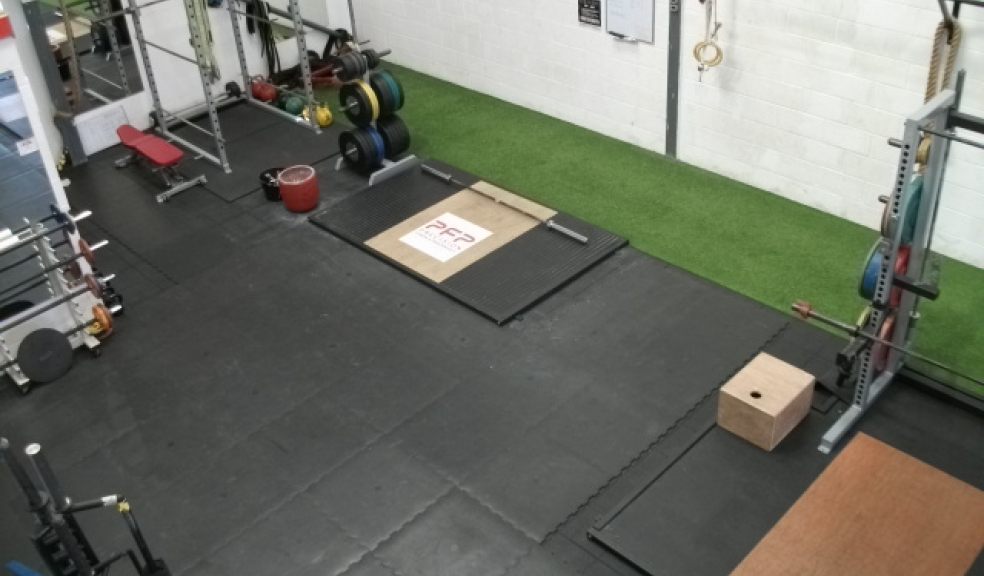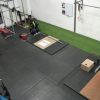
Questionable fitness training and nutritional advice!
Here are 10 things that I hear a fair bit relating to training, nutrition and performance that I think are open to debate…
‘We don’t need to do specific core type training’. I hear this a lot these days and in fact used to preach it myself. The rationale is that if we eat clean and do the big lifts / movements, our core will take care of itself. However after a lot of info gathering and experience gained I realise that this is not correct. I conclude that we should continue with the main big lifts such as dead-lifts, presses, dips, chin ups, squats (and squat variation), explosive lifts / movements, rows etc but these should be supplemented with more specific ‘core’ training. These can be a variety of movements but personally I generally try to keep them simple by including stuff like hanging leg raises, standing rotations using balls, cables, bands, plates, bars and sandbags at various velocities, angles and resistance (normally heavy) as well as some static holds. In fact recently I have started including some sit up type stuff but I do them away from the ‘exercise police’ for fear of being arrested for being ‘none functional’!
‘I need ‘carbs’ for energy’. Not all carbs are created equal, what most of us think of when we say ‘carbs’ is – bread, pasta, cereal, oats, energy drinks etc. These are indeed carbs and indeed give us energy, but we are not equipped to function well on them and constantly fuelling ourselves with them can cause a host of ‘down stream’ health issues, not least of all is ‘fat-itis’. Fats and protein gives us energy and at a more sustainable rate. In fact we do not need the above mentioned carbs to function or to give us energy (although we may want them). Our carb intake ought to be obtained from a lot of leafy veggies, some fruit and the odd portion of brown rice / quinoa / spuds and the like. As well as providing energy they provide a host of other nutritional benefits like: minerals, fibre, vitamins, chlorophyll, pre-biotic, restoring healthy PH balance etc. We should strive to be ‘fat adapted’ which basically means that we become efficient at using good quality fats / protein for fuel as our ancestors did. We then support these energy giving nutrients with veggie and some fruit. I can not see our paleo ancestors reaching for the sports energy drink prior to the hunt!
“Supplements don’t work”. Unfortunately the food we eat today does not have the same nutrient value as it had for our ancestors. This is due to the way the soil is artificially fertilised and crops sprayed, produced, stuff added, packaged, transported and stored. If the animals that we eat are fed poor quality food themselves (soya, grains) it makes their meat poor quality and deficient in vital nutrients. If we accept this as fact (which it surely is) it stands to reason that we are not going to get all the good stuff we need unless we add some basic supplements to our daily routine. My advice would be to cover the basics with a multivitamin, omega 3 (preferably from fish oil), pro biotic and possibly a digestive enzyme. There are loads more that can work…and loads that are crap!!!
“We must supplement to be healthy”. Paradoxically I disagree with this to some extent as well. The problem with supplements is that a lot of them are poorly produced and have spurious health benefits. For example supplementing with calcium, which has been touted as being a good thing, in fact has been shown to be anything but good! Also we often think that a ‘pill’ will fix things and therefore we can eat rubbish. Many people are fit, strong, healthy and happy by simply eating correctly and getting some physical activity without touching supplements. However it is worth noting that we are “living in a toxic world” and this is only getting worse as pollution, GMO foods, environmental estrogens, plastics, stresses, dodgy medication, poor quality water, grain fed meats and so on increase. These problems are a modern day epidemic and some supplements have been shown to help defend against these constant and insidious attacks. Especially useful to people in urban / heavily polluted areas. My point is that some supplements can be useful but we must first eat a clean diet.
‘A Paleo diet is not for me’. This will sounds very harsh, but the vast majority of people that think this are often fat or unhealthy…but normally both! I feel that we must eat as we are designed by nature to eat. This is very simple to explain: eat dead stuff, green stuff, vibrant coloured stuff, some nuts, some seeds, some fruit, and water…i.e. as paleo as possible. I have yet to see someone that trains well and eats according to our genetic make-up (paleo) that is fat or unhealthy.
‘Training should be fun’. This depends on the type of training you do, but I am talking here about training to improve body composition. To lose fat / get lean the training has to be harsh to be effective. If we are able to produce a high level of lactic acid, our PH level swings towards acidity, this will stimulate the pituitary gland to produce growth hormone which along with other reactions will burn fat a fierce rate. Anyone that has trained when the system is flooded a high level of lactic acid will know very well that it is far from fun! Of course some training can and should be fun (skills, games, learning new stuff, practising technique and so on) but for effective body composition transformation ‘fun’ is the wrong word to describe it. Of course I admit that this depends on a person’s idea of fun! As you head off to train your mood should be a strange mix of apprehension and excitement.
‘You must do Olympic lifting for athletic development’. I agree that we should do some high velocity training which has been shown to increase power / speed and coordination and that Olympic lifting fits the bill perfectly. However if you are crap at these lifts for what ever reason you can still improve power / speed / coordination with a host of other exercises / movements. High pulls, push press, snatch grip pulls from a box, banded lifts, box jumps, broad jumps, squat jumps, split squat jumps, sleds, prowlers, resisted sprints, complexes, throws…the list is endless. So if someone needs to improve power and just doesn’t have the time or aptitude to master the Olympic lifts it doesn’t matter. Get them to lift heavy and quickly on the ‘up phase’. High pulls are a good sub for power cleans.
‘Single leg training is rubbish’. Single leg training will help overcome any discrepancies in strength and structural balance between the limbs (as well as further up the body). The single leg stuff should be biomechanically sound though. Split squats, walking lunges, box steps up, stair climbs, single leg plyos, single leg lifts and so on are great. But I fear that pistol squats (a single leg squat and force the non working leg out in front like a Cossack dance) although very impressive and require a lot of strength, balance and flexibility are biomechanically a poor choice. They appear to put unnecessary strain on the knee and do not seem to mimic any natural movement pattern. Perhaps a better single leg strength and balance option is to do the same movement but force the free leg to the rear. Whatever! Personally doing them in the past has landed me under the knife for further knee surgery so maybe I am just a bitter old tosser! My advice is to supplement your main double leg lifts with some single leg movements / exercises or indeed vice versa.
‘Protein / recovery shakes, they are just Fat Shakes’! A fair few trainers, coaches and athletes consider that we do not need a shake after training / physical endeavour. The rationale is that we should eat real food to recover, or that we are simply replacing the calories used with the calories from the shake. The whole ‘calories in, verse calories out’ assessment of physical activity and food consumption is flawed but I think most people know this already. If the so called training involves a few biceps curls, some crunches and a couple of triceps kickbacks, then do not have you recovery shake as there is nothing here that requires recovery! If on the other hand your training / game / sport is arduous, is high volume and lacking in rest intervals then a recovery shake may well be in order. The contents of the recovery shake will depend on a few factors such as:
-The amount of work done and the metabolic effect.
-Body fat % should also determine the ingredients of the shake.
-Aerobic / endurance recovery shakes should be different to strength / hypertrophy recovery shakes.
Liquid recovery meals are quickly absorbed and do not require much energy from the gut to digest. Anyone that has trained / played hard will know that to ‘eat real food’ straight after training (while still sweating) is very difficult for some. You may not feel able to eat whole food immediately post training. A liquid meal / shake allows us to get nutrients in to the worked muscles quickly. This will blunt cortisol, replenish glycogen, speed recovery and increase anabolism. Having defended recovery drinks, it is worth noting that some shakes have very poor ‘health promoting ingredients’. They may be packed with protein, but have a look at the other stuff in the tub. If they read like a chemistry lesson and taste of something like cookies and cream, or make you feel rubbish and bloated then I would agree with the heading to this paragraph!!!
‘What do you bench’? Bench pressing is great (fun even!) but from an athletic viewpoint does it matter? Probably not! Power lifting aside, does it have the best carry over to most sport? Probably not! Look at the angle of the press as we lie flat and lift, what does it replicate? Not much! Benching can be a great inclusion to a strengthening program but add presses from various inclined angles will have a better athletic carry over and will arguable be more beneficial, not to mention healthier on the shoulders. This is not to say that benching is a waste of time, far from it, just that various angled presses with dumbbells and different bars are better…in my opinion. Have slagged off benching…I am a bloke so of course I bench…who cares that it further aggravates my impinged external rotators…I man-up and bench! ![]()
“I AM THE WISEST MAN IN THE WORLD BECAUSE I KNOW THAT I KNOW NOTHING”. Some clever dude once said that and I have found it to be very true especially with physical training/performance. We seem to be constantly reinventing the wheel…So if you disagree with some of this stuff that’s ok because I will probably change my tune later! ![]()













